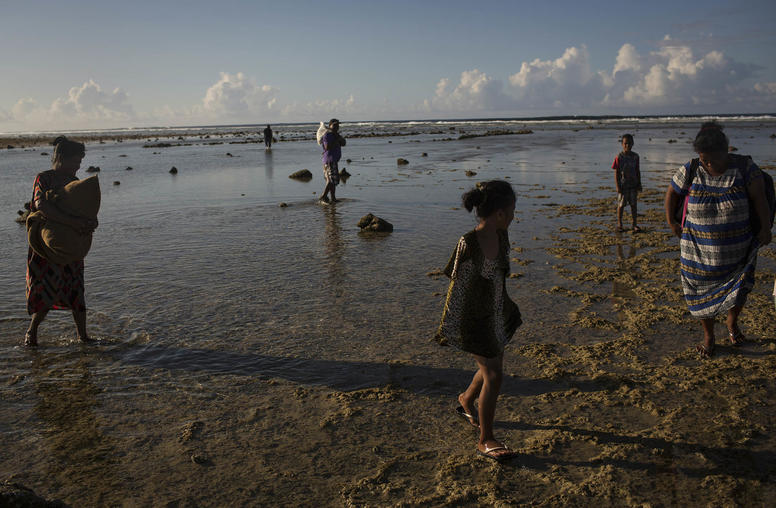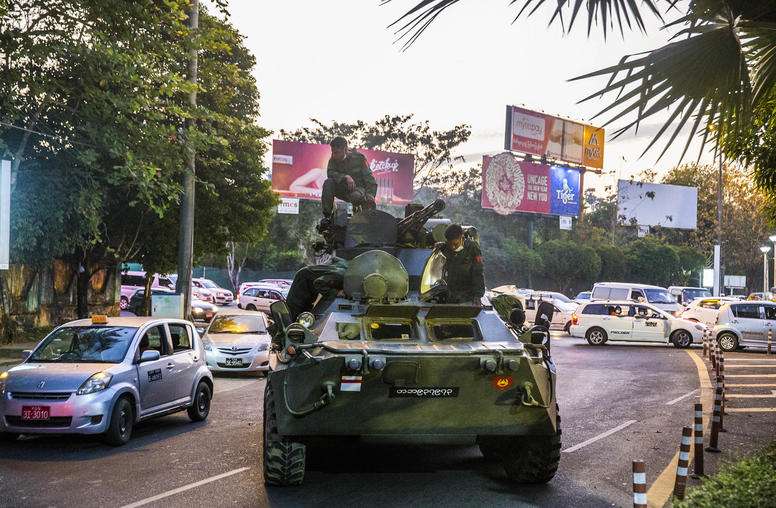Publications
Articles, publications, books, tools and multimedia features from the U.S. Institute of Peace provide the latest news, analysis, research findings, practitioner guides and reports, all related to the conflict zones and issues that are at the center of the Institute’s work to prevent and reduce violent conflict.

How to Avert a Gang Takeover of Haiti
Policymakers across the Western Hemisphere were shocked this weekend by news of a concerted effort by a coalition of gangs to attack Haiti’s key infrastructure, block the capital’s airport and prevent Prime Minister Ariel Henry from returning from a trip abroad. After all, the analysis went, Henry’s position seemed cemented as the deadline of February 7 — when he was supposed to hand over power to an elected government — passed with no real challenges to his rule. Now, absent an inclusive transitional arrangement that can effectively govern, the possibility of total collapse and anarchy in Haiti is ever more real.

How China Seeks to Dominate the Information Age
A combination of U.S.-China rivalry and China’s national security goals is driving Beijing to take a more assertive approach to the governance of international common spaces — from outer space to cyberspace. China’s leaders believe the world has transitioned from the Industrial Age to the Information Age. Consequently, Beijing sees the ability to generate, move, analyze and exploit information more rapidly and more accurately as the new currency of international power.

After Taiwan’s Election, China Is Now Ratcheting Up the Pressure
Beijing is intensifying its pressure on Taiwan’s freshly elected president, William Lai Ching-te. Instead of relying on conventional military or economic pressures, however, Beijing has employed multifaceted tools of coercion to demonstrate disapproval of the January election results. Although China is carefully calibrating its behavior to avoid provoking Taipei or the United States, Beijing’s efforts to gradually change the status quo and erase the traditional boundaries between Taiwan and China could lead to escalated tensions and unintentional conflict.

A Perilous Moment for Bangladesh’s Democracy
Bangladesh’s parliamentary elections in January cemented the country’s transition to a “dominant-party” political system. Aided by an opposition boycott on Election Day, the Awami League (AL) extended its 15 years in power with another five-year term, which will soon make Bangladesh’s prime minister, Sheikh Hasina, the world’s longest continuously serving female head of government in contemporary history. But political dominance comes with risk. Around the world, dominant-party systems often develop common maladies that harm the country’s governance. Ensuring competition across politics, government and the economy can forestall these problems.

Increasing Stability in a Deterrence Relationship with North Korea
A Korean Peninsula free of nuclear weapons remains a critical U.S. national security interest, but it is now a long-term interest. Because there is little possibility of disarming the regime in Pyongyang at an acceptable cost in the foreseeable future, the United States-South Korea alliance needs a strategy to coexist peacefully with a nuclear-armed North Korea.

For the Marshall Islands, Nuclear Remembrance Day Is a Painful Reminder
Between 1946 and 1958, the United States detonated 67 nuclear and thermonuclear weapons in the Marshall Islands, a legacy that is commemorated today on the 70th anniversary of the Castle Bravo hydrogen bomb test. This nuclear legacy still reverberates in the Marshall Islands today, straining its relationship with Washington and creating a fissure that Beijing is exploiting as it seeks to increase its regional influence.

The Challenges Facing Afghans with Disabilities
In Afghanistan, obtaining accurate data on the number of persons with disabilities — including gender-disaggregated information — has always been a challenging endeavor. But based on the data we do have, it’s clear that more than four decades of violent conflict have left a considerable portion of the Afghan population grappling with various forms of disabilities, both war-related and otherwise. And the pervasive lack of protective mechanisms, social awareness and empathy surrounding disability continue to pose formidable challenges for individuals with disabilities, with women being disproportionately affected.

Myanmar: New Data Show Wide Support for Unity Government
The three-month offensive by Myanmar’s alliance of disparate ethnic armed groups has weakened the military regime more than at any time since it seized power three years ago. This highlights a question for international policymakers: Could the anti-coup forces stabilize Myanmar? New public opinion data bolsters evidence that the National Unity Government (NUG) — which combines representatives elected in the 2020 election and ethnic minority leaders — has a solid basis to lead such an effort, holding strong popular support across Myanmar’s numerous ethnic groups. Such stabilization will depend on the NUG’s ability to deepen its inclusivity and responsiveness and broaden its political coalition.

Plan for Gaza’s Future Highlights the Challenges That Lie Ahead
The document that Israeli Prime Minister Benjamin Netanyahu presented to his security cabinet for discussion on February 22 may be his first formal articulation of a postwar plan for Gaza, but is largely a compilation of views that have been expressed publicly over the past few months. Accordingly, it offers few surprises, but could deepen tensions between Israel on one side and the United States and regional stakeholders on the other.

Myanmar’s Fateful Conscription Law
Earlier this month, Myanmar’s ruling junta enacted a compulsory conscription law that had been dormant since 2010. General Guan Maw, a leader of the Kachin Independence Organization, greeted the junta's decision by comparing it to the 2021 military coup: "If February 1, 2021, was the beginning of the end, the law enforced on February 10, 2024, can be said to mark the end of the end.” As popular reactions to the new conscription plan roll out across the country, General Guan Maw’s pronouncement becomes increasingly prescient.